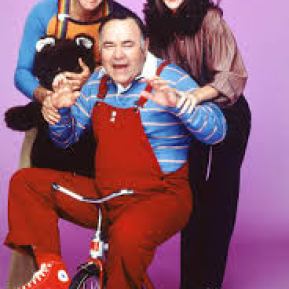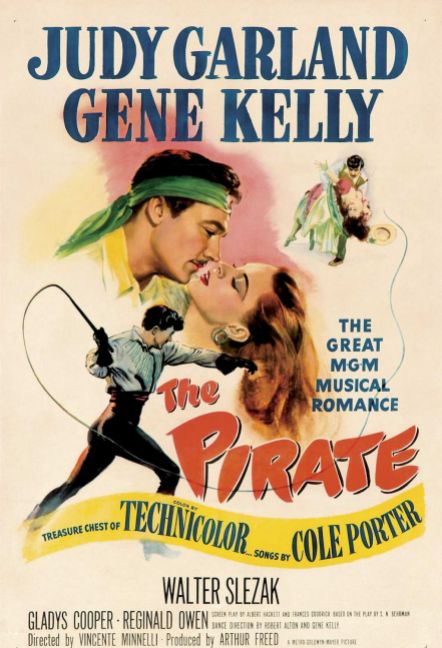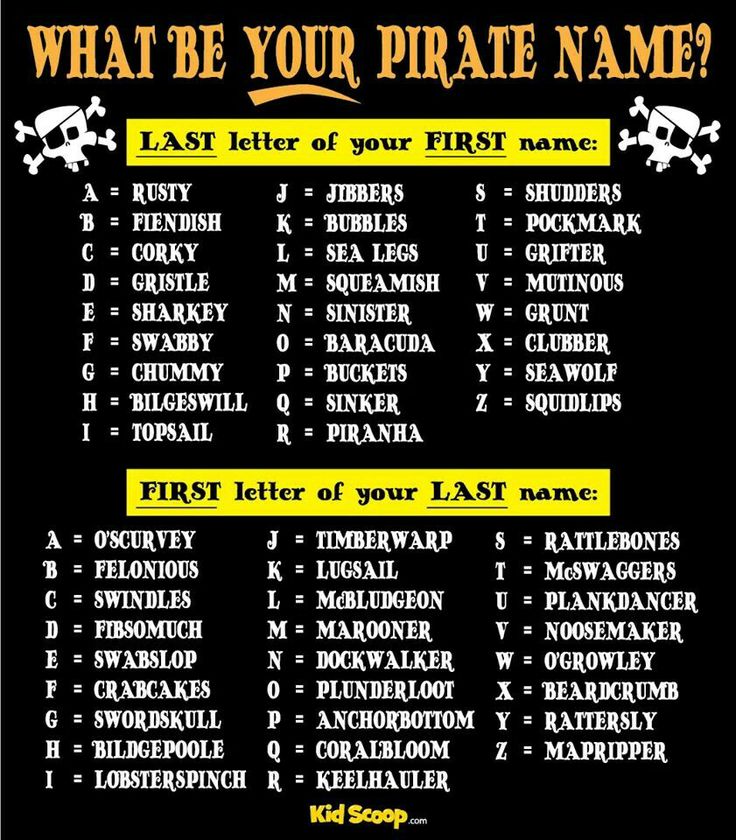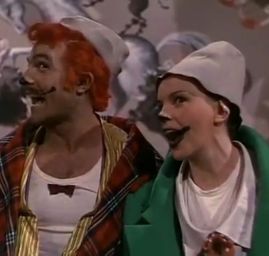Bette Davis is America’s greatest actress. Although, if you were to have said this to her, she would have probably told you it is Katherine Hepburn. This could have been a typical Davis response. There is no humble attempt to say thank you or to say there are many great actresses. No, the irony is in the subtle acknowledgement of the term “greatest” and with that, her honest opinion. Fans of Davis expected no less of her. She possessed a cutting wit and remarkable intelligence. No one knew what she would say; but, what they did know is that their reaction to it would be either laughter or complete awe. Bette Davis was a lot of things to a lot of people, good and bad. However, she was constantly true in her performances and strived for perfection, in every role. She understood that if the public accepted her, everything else concerning her work was trivial.
What is not trivial is that I able to pay homage to such an Icon of the Silver Screen through the Second Annual Bette Davis Blogathon hosted by Crystal from In The Good Old Days of Classic Hollywood. Please check out more blogs written about Davis and her work from other bloggers paying her tribute too by using the link below:
https://crystalkalyana.wordpress.com/2017/03/24/the-second-annual-bette-davis-blogathon-has-now-arrived/
During the span of her career (1929 – 1989), she starred in 124 movies. She was nominated 11 times for an Oscar and won 2 for Jezebel (1939) and Dangerous (1936). Davis was always proud of the fact that her work as an actress was a priority. It was only seconded by her first priority, her audience. She presented each character she played with realistic honesty. It did not matter if that honesty or realism left her looking less than stellar or glamorous. She put it this way: It was all just a matter of learning not to subdue or conceal the person who was really me. Honesty in her work by bearing a part of her soul on screen makes her work an authentic Art form. Bette Davis is the definition of a true artist. There was no one like her then; and, there is no one like her since. She courageously accepted unlikable roles that other actresses turned down and refused to do. They believed portraying such unpleasant characters would typecast them and limit future roles.
Presently, I can think of only two other actresses who had the similar chutzpah and impact to that of a Davis performance: Charlize Theron’s portrayal of serial killer, Aileen Wu0rnos, in Monster (2003), and Meryl Streep’s portrayal of manipulative and mean Violet Weston in August Osage County(2013). One of the main differences between their superb characterizations and that of Davis’ portrayal of Mildred Rogers in Of Human Bondage (1934) is that Davis’s portrayal is more powerful and a “hell’va” lot more chilling. Davis devoured her roles of an evil shrew and bought the idea of a powerful women to new heights. To most audiences of the 30s and 40s, this was shocking. All this happened at a time when most people still seen women as powerless beings in need of a strong man to make their decisions and protect them.
It All Began With “Of Human Bondage” (1934)
In 1929, the studio bosses didn’t know what to do with Davis. She didn’t fit the beautiful, silver screen actress mold. This small-framed, shy, attractive (not beautiful) blonde, with pop eyes came to Hollywood from the New York stage at age 22. Sexy is not an adjective they used to describe her. What they did describe was her distinctive New England accent. Remember, in 1929, talkies were new to the movie industry.
So, they put her in movies, that did not distinguish her or utilized her talents. She went from Universal Studios to Warners Brothers in the space of two years. Davis described her early work as “Dumb Dame” roles. Months before RKO considered borrowing her from Warners to play Mildred, Davis walked off a Warners set in protest of being assigned a secretary role with 12 lines.
RKO Studios was looking for an actress for the movie adaption of a novel by British author, W. Somerset Maugham, Of a Human Bondage. The male lead in the project was British actor Leslie Howard. Many actresses turned down the female leading part because the character, Mildred Rogers, was so loathsome that they were afraid it would destroy their careers. Since Davis felt her own talents were wasted at Warners, she felt she needed the part and hassled lamented campaigned Jack Warner for it. Luckily, Warners wanted one of RKO’s actresses, Irene Dunne, for their movie, Sweet Adeline (1934); so, they loaned Davis to RKO in order to get Dunne for their movie. Warners also made Davis a promise: After she completed Of Human Bondage, she would to do a movie, Housewife (1934) for Warners. They promised to give her better parts in quality movies once she finished filming in Housewife. However, while Davis was making Housewife, Warners also refused to loan her to Columbia Pictures for the lead in the Academy Award winning film, It Happened One Night (1934) with Clark Gable.
*Davis learned quickly: it doesn’t matter how well you are liked. What is most important is to be memorable.
Bette Davis Breaks the Hollywood Mold in “Of Human Bondage”
Davis gave a tour de force performance in Of Human Bondage. She tackled that role of Mildred Rogers with unrelenting raw emotion. Pretty Mildred became the best “Bitch” the silver screen has ever seen. She was as mean and cruel as any powerful, cruel man ever dared to be. She was not the child like Victorian lady before World War I; indeed, Mildred was a by product of that war. She was a women of the Jazz Age with the mindset of a flapper, a vamp, a gold-digger, a Tomato, and an “It Girl.” She was obsessed with wealth and all that it could give her. She symbolized the times with her outward beauty; but, inwardly she was ugly and shallow with a complete lack of compassion (psychopath or sociopath, maybe?).
A Summary
A timid and shy, young British artist, Philip Carey, (Leslie Howard), has been painting in Paris for four years when he finally asks his art teacher to honestly tell him if he is wasting his time in becoming successful artist. His instructor honestly answers him: His paintings are nice but quite mediocre. Disheartened, he returns to London to begin studies in medicine. His father was a doctor; so, he could carry on with a family tradition and could be in service to help people.
Although, he is ultra sensitive and painfully self conscious of his deformed club foot, he makes some friends with the other medical students. Boys being boys, they particularly enjoy looking at his nude paintings of Paris models. One of his friends, impressed with Philip’s experience with the ladies, persuades him to speak for him to a pretty teahouse waitress that he is infatuated with but too nervous to talk too.
Philip first sees Mildred Rodgers (Bette Davis) laughing and flirting with an older patron, Emil Miller (Alan Hale) at his table. His friend asks him if he thought she was marvelous. Philip said no. She is anemic. Then he asks Philip if he thought she might be in love with the gentleman. Philip replies, “of course she is.” This is the “thinking” Philip’s reaction.
When she comes to wait on their table, Philip teases her to try to get her to smile and laugh with them. Instead of being charmed, she takes offense and rudely turns her back on them. Philip does not leave with his insulted friend; instead, he stays and tries once more to charm the abrasive cockney speaking waitress. He stays until Mildred reluctantly returns to wait on his table again. He tries to be polite, charming, and complimentary. He asks her for another chance to make her smile. Her reply: Maybe I will or maybe I won’t. Then, she turns her back on him again. Since she seems unattainable, and at least two men want her, how could Philip possibly refuse the challenge. You can see that he is enamored with her. As he gets up from the table to leave, he passes in front of Mildred. She notices his limp. She makes a distasteful sound and looks away with disgust.
When he returns the following day, he sees her flirting with Miller again. He decides to sketch her face while he waits. When he is through with the drawing, he taps on his glass to get her attention. She reluctantly leaves Miller’s table. Philip flips the drawing over to get her attention. She smiles and leans over him to get a better look. She asks if that is her face. Teasingly, Philip relies, it looks like you, doesn’t? She becomes offended again. And Philip is even more intrigued by her response. He asks if she would dine with him and go to the theater. She agrees to meet him at Victoria station. After their strange, mixed signals, first date, Philip literally dreams the impossible: As they are elegantly dancing, she looks into his eyes; and, he sees in her eyes her love for him. Once awake and back in medical school, he struggles through his studies. While in class, he begins to daydream of her too. Then, he skips his studies to go see her.
When Mildred breaks a later date with him, she lies and tells him she has to go stay with an ill aunt. He must have sensed that she was lying because he becomes frustrated and tears up the recently purchased theater tickets. He decides to meet up with her after her shift to try once more to get her to go out with him. She coldly rejects him. He confronts her and asks if she is going out with Miller. She doesn’t deny it. Philip finally realizes that she is waiting for Miller in the same manner he is waiting for her. He tells her if she doesn’t go out with him that night, she will never see him again. Mildred relies, Good riddance to bad rubbish.
As Philip sadly goes back to his flat, he runs into his partying friend, Henry Griffith,(Reginald Denny) with a lovely young woman on his arm, Nora Nesbitt, (Kay Frances). Philip eyes light up at seeing the lovely young woman. His friend invites him for a drink. Philip refuses. Harry then, looks at Nora, and suggests to Philip if not a drink, maybe “desire?” Again, Philip refuses and goes into his room. He can hear the lively party through his flat’s walls which makes it even more difficult for him to study. His mind wanders; and, again he begins to daydreams of Mildred.
Once back at school, we find Philip daydreaming of Mildred while taking his midterm exams. Not surprisingly, he fails his exams. When his friends try to persuade him to go out drinking in order to cheer him up, he refuses. When Harry asks him what would help, Philip can only think of seeing Mildred again. So, we next see them both together on another date. Before their following date, Philip decides to ask Mildred to be his wife. Instead, of accepting, she lets him know she is engage to marry someone else, with money. She also informs him that she hates to eat and run; but, she must meet her fiancé at the theater. Later that evening, he sees her leaving the theater with Miller.
Henry seeing Philip so brokenhearted advises him that the cure for getting over one woman is to find another one. So, a rebound relationship with Nora Nesbitt is exactly what the doctor ordered. Happily for Philip his love life changes for the better; but, like most rebound relationships someone is going to get short changed and hurt. As Nora’s lover, he learns that she is a romance writer who writes under a male pseudonym. She is kind and supportive of him in everyway, lovely girl, Nora Nesbitt (Kay Johnson). This was the lady on Henry’s arm the night of the party. She falls in love with Philip and encourages him to focus on his studies. With Nora, Philip is moving on with his life in the right direction.
Then, it all falls apart when Mildred shows up in his apartment: penniless, distraught, and pregnant. She tells him that her husband deserted her. Compassionate Philip sees her in such dire straits that he cannot stop himself from helping her. He gives her money and confronts Miller. Miller refuses to help Mildred because he is already married with children. Philip asks her why she didn’t tell him the truth about not marrying Miller. All she would say is that she couldn’t tell him.
Philip decides to marry her once the baby is born. And the story continues, with Mildred increasingly being ungrateful, unfaithful, manipulative and controlling. Mildred Rogers is the demonic harpy that haunts every person’s dreaded fear of being in the worst type of toxic relationship. However, don’t lose all hope for sensitive, kind Philip because this is after all, a Hollywood movie. But, to learn how it ends for Philip and Mildred, I encourage you to see this unforgettable movie.
A Link to yet another break up between Philip and Mildred. And a peek at Davis and Howard brilliant performances.
https://m.youtube.com/#/watch?v=8g-w5cuWI5o
Difficulties on Set
Like every beloved novel, adapting it to screen can be a bit tricky. And, like most adaptations, it is the fans of the books who are its most supportive and critical, especially when it comes to casting. When British actress, Vivian Leigh, was cast to play the part of Scarlett O’Hara in American movie, Gone With The Wind (1939), fans of the book began a protest. Same thing happened when American Actress, Renee Zellweger, played Bridget Jones, in British made movie, Bridget Jones Dairy (1998). So, it goes without saying, many people were not happy with the news that American Actress, Bette Davis, is going to play Cockney speaking Mildred. Even British gentleman actor, Leslie Howard, was very upset that she was chosen.
In the beginning, Howard shut down. He refused to interact with Davis during the down time between scenes while they prepared sets. He went off to himself, with book in hand, and ignored his surroundings while he read and escaped. In her close up shots, he refused to act his lines. He just “threw them at her” while she was being filmed. According to Davis, one of the cameramen she befriended told her that he informed Howard that ” the kid, was running away with the film.” Howard’s attitude soon changed; and, he began to respect Davis’s performance and professionalism.
During filming, both Howard and Davis became very sick. Howard became sick ironically with toxic poisoning. It became a life or death situation. His doctor did emergency surgery to remove his tonsils. With both stars in such a weaken state, the studio decided on a tactic to save on filming time and money. They build six small sets on a revolving stage. This had never been done before. This saved on the wait time between the set changes. Eventually, the film finished by deadline and within budget constraints.
A few Examples of Davis’s Professionalism
To prepare for the role, Davis needed to speak with a realistic and natural Cockney accent. Davis hired a British maid. She never told the maid the real reason she hired her because she wanted to hear and emulate her natural Cockney accent without the maid unconsciously dressing it up.
As Mildred’s atrocious lifestyle catches up with her, she becomes a shell of the healthy and beautiful woman she was. Davis wanted to make sure that she looked as realistic as she could. She did not want to look like a glamorous beauty playing a part. So, Davis did her own make up for those later scenes. As Davis described it: consumption, poverty, and depression doesn’t look pretty, as you can see for yourself in the photos below. The top picture is of course when Mildred is very sick. You can compare the differences in her appearance from the last two pictures. I think Davis created an extremely convincing look.
What is Human Bondage?
I admit that I did not read W. Somerset Maugham’s masterpiece; so, when I first saw the title, Of Human Bondage (1915), I thought it was about slavery or some sort of burden forced upon a person. After, I saw the movie, I thought it was about toxic relationships and obsession. Even Nora Nesbitt says this to Philip when he breaks off their relationship: I love you, you love her, and she loves Miller. All three of them are victims of unrequited love bondages. And, I would have been quite happy to leave it at that; but, the purpose of this blog is to find life lessons with their universal connections through the arts.
So, I did a little research and found that Maugham took his title from a philosophy book, Ethics (1883) written by Baruch Spinoza. In the foreword of his novel, there is a definition of Human Bondage which is a quote from Ethics:
The importance of man to govern or restrain the emotions I call bondage, for a man who is under their control is not his own master…so that he is often forced to follow the worst, although he sees the better before him.
Human Bondage is not really about a relationship with another person. Instead, it about how you make decisions and the way you, yourself, reacts to them. Perhaps knowing the full title or titles of this section may help: Of Human Bondage OR Strength of Emotions.
Men are prey to their emotions, according to Spinoza. He explains that men are conscious of their actions and desires but are ignorant to their causes. Making the best choices should be based on the final end or an actual goal. If every decision you make is based on how you feel, you are setting yourself up for a potential fall. You are not really in control of your life because you relinquished that control to your emotions (feelings).
This kind of bondage is generally how most people operate their lives, unless you are Mr Spock. So, in the movie, Philip Carey is enslaved to his emotions about Mildred; and, Mildred is enslaved to her uncontrollable lust for wealth. Personally, I think you need a little of both in your life: we should have thoroughly “thought out” strategies or goals; and, you should have moments of just letting it go, and embrace the moment. A little of both is the key….moderation between the two.
I believe Bette Davis did both too. In her work and career, she was in control; but, in her personal life, her emotions became her master. Davis had four marriages. When it came to love, she gave up control to her emotions just like Philip Carey and Mildred Rogers.
According to Davis, the love in her life:
I have loved people who cared little or nothing for me and when people have loved me, I have been embarrassed…in order not to hurt their feelings, I have often acted a passion I didn’t feel.
So, was she only attracted to people she knew didn’t love her? If someone loved her, did she get embarrassed because she felt she didn’t deserve their love? Love at best, is a slippery slope for most of us; but, knowing what qualities you want to see in your partner is at least a start to finding someone you think is good for you. If you put no thought into what your want, you could easily end up in a very toxic relationship. The continuous ups and downs of an overly emotional relationship can be very addictive; but, it seldom leads to long lasting happiness.
Movie Impact
Unbelievably, the Academy of Motion Pictures, snubbed Davis’s performance. Many actors and actresses wrote in her name as a nominee on their ballots and then voted for her. This is a first. So, the Academy allowed the “written in nominee” for that year only. The following year, they hired an accounting firm, Price Waterhouse, to take over the security of the ballots and the counting of the votes. It still continues today and has worked out very well…except for the 2017 scandal of giving out the wrong envelope for Best Picture. We all remember, “it is not La La Land;” but, can most people honesty remember which movie did win?
One reason why the Academy snubbed Davis could be due to Warners Brothers Studio. Warners was a bit embarrassed by Davis’s performance in Of Human Bondage. Here was their contract player delivering such a magnificent performance in another studio’s movie. They tried to bury the publicity about the movie involving her name. To say Warners might have influenced the Academy in not nominating her would not be a stretch of imagination.
Two years later in 1936, Davis wins her first Oscar for Dangerous. Davis claimed it was a “Consolation Prize” for not winning for Of Human Bondage. She also claims that she named the statuette, Oscar. She says the backside of the Statuette’s “posterior” resembled her husband’s squared one. His middle name was Oscar.
Davis set the bar high for future actresses in her breakout role as Mildred Rogers in Of Human Bondage. Bette Davis considered herself to be a actress first and movie star second. To rest of the world and of course her fans, she is Bette Davis…Hollywood legend.
Don’t forget to check out the other posts about Davis during this special Blogathon.
Second Annual Bette Davis Blogthon
Click on the following link…
https://crystalkalyana.wordpress.com/2017/03/24/the-second-annual-bette-davis-blogathon-has-now-arrived/

References
https://en.m.wikipedia.org/wiki/Of_Human_Bondage_(1934_film)
Great Blog on Leslie Howard with many primary sources and documents about Howard’s work:
https://lesliehowardsteiner.blogspot.com/p/of-human-bondage.html
http://www.vanityfair.com/hollywood/2016/07/classic-hollywood-abortion
http://www.bing.com/videos/search?q=August+Osage+County+Dinner+Scene&&view=detail&mid=1C1585C9DFC072FE36921C1585C9DFC072FE3692&FORM=VRDGAR
http://www.bing.com/videos/search?q=monster+trailer+charlize+theron&view=detail&mid=D2079DF6CE02069E24E7D2079DF6CE02069E24E7&FORM=VIRE





































